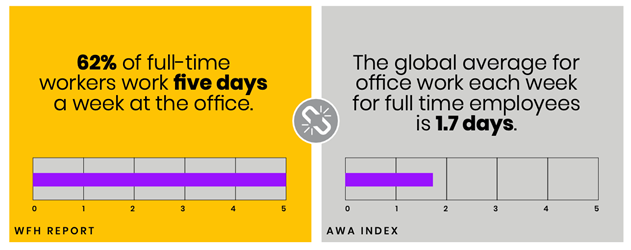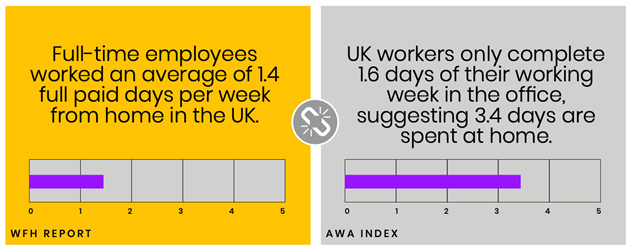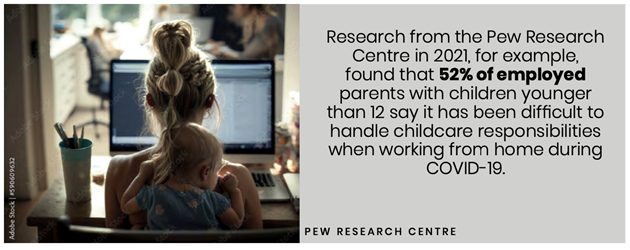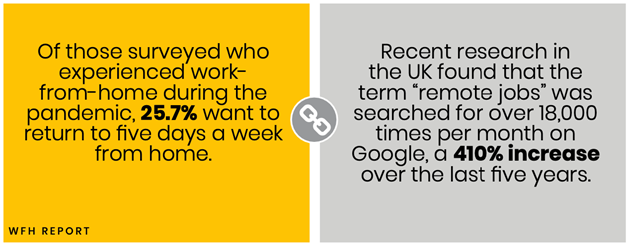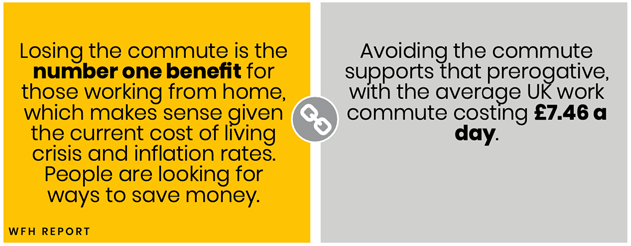Lay of the Office Landscape
Does working from home damage productivity as much as we think it does?

MORE STORIES
- Page 11 of 26
Please click here to chat through what you'd like your Success Story to be.
Stanford’s Institute for Economic Policy and Research Working from Home Around the Globe: 2023 Report, published earlier this year, has found that working remotely full-time is associated with 10 – 20% lower productivity.
That was the headline. However, upon analysis and further context, another story begins to emerge.
Perhaps Stanford’s Institute for Economic Policy and Research and AWA are looking at different countries? Let’s focus on one to see if that is the case.
The numbers do not add up. Different research panels will yield very different results, so do not take survey data as read. There are almost always other factors, such as the type of business, role and sector.
What does it mean to be “productive”?
The measurement of productivity is an area of research that comes under fire due to its subjective nature. Productivity is a “measure of economic performance that compares the amount of goods and services produced (output) with the amount of inputs used to produce those goods and services”. Knowledge work is harder to measure because the input and output can be as loose as ‘thinking time’ and ‘ideas’. How do you measure either of these? In the knowledge sector, the closest we can get to measuring productivity is to measure perceptions of productivity. Leesman does this.
According to Leesman data, 65.2% agree their workplace – in this case, the office – enables them to work productively, compared to 87.4% of home workers.
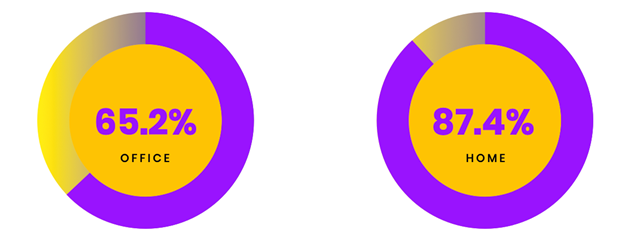
According to exclusive data from People Management’s LinkedIn poll of 1,540 HR professionals, those in HR have not witnessed a drop in productivity among their remote and hybrid workers, with 88% believing that remote and hybrid working has no influence on worker productivity.
This demonstrates that statistics and the insight gleaned from them can be more misguiding than helpful when it comes to designing and implementing workplace strategies and work models.
That said, the below takeaways can help shape hybrid policies:
It is no surprise that in the UK, and many other countries, working from home is the preferred option for many.
That doesn’t mean productivity has to suffer.
The key to a productive workforce, no matter where or how they work, is autonomy. Workers who feel trusted to complete their work in their own time and without interference from senior team members are more likely to be productive and engaged in the workday, according to CIPD research.
To find out how BMG can help your business understand its hybrid policy and how to format the workplace, get in touch and speak to our workplace management team.
MORE STORIES
- Page 11 of 26
Please click here to chat through what you'd like your Success Story to be.

